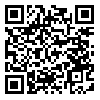Volume 8, Issue 4 (12-2020)
J Surg Trauma 2020, 8(4): 130-137 |
Back to browse issues page
Download citation:
BibTeX | RIS | EndNote | Medlars | ProCite | Reference Manager | RefWorks
Send citation to:



BibTeX | RIS | EndNote | Medlars | ProCite | Reference Manager | RefWorks
Send citation to:
Hajinezhad M E, Fouladvand M, Irankhah S. Challenges of clinical education in the operating room from the teachers' viewpoint: A qualitative study. J Surg Trauma 2020; 8 (4) :130-137
URL: http://jsurgery.bums.ac.ir/article-1-209-en.html
URL: http://jsurgery.bums.ac.ir/article-1-209-en.html
MD, Faculty of Medicine, Birjand University of Medical Sciences, Birjand, Iran
Abstract: (2547 Views)
Introduction: Clinical education is an ever-lasting requirement in educational settings for students and faculty. However, it is associated with numerous challenges that can have an impact on the efficacy of both the students and the teachers. The challenge can be more prominent in specialized environments such as the operating room. In this qualitative study, we have tried to identify these challenges and provide solutions to them.
Methods: This is a qualitative content analysis study was performed with the incorporation of seven operating room and anesthesiology instructors of Bushehr University of Medical Sciences. The required questions were first collected and subsequently posed as interviews in the operating room setting. Data were collected through the recording of semi-structured interviews and until the data saturation.
Results: Research findings are reported in three themes and nine categories. The main themes were organizational structure, planning, and human resources, each of which with specific categories and/or subcategories as per the subject matter. In terms of organizational structure, the most serious challenges comprised a lack of welfare facilities and problems in the field of education, such as non-specialization of operating rooms and limited physical space. The challenges related to planning comprised of a lack of student self-evaluation, delay in surgery initiation, and a large number of students in various fields. As for the human resource challenges, the most apparent problems were insufficient education delivered to students before their entrance to the operating room and the lack of familiarity of officials with the operating room environment.
Conclusions: Given the questions posed to and the answers received from the instructors, most of the problems in the operating rooms in terms of education are related to the infrastructure-associated problems in the operating room and the students' approach to the operating room. Despite the enormous efforts of the instructors in education, as they were respondents in the study, it could not be clarified how the problems in human resource and teacher dimensions could help solve the overall problems, suggesting that further research is required with the help of students and other groups involved in education in the operating room.
Methods: This is a qualitative content analysis study was performed with the incorporation of seven operating room and anesthesiology instructors of Bushehr University of Medical Sciences. The required questions were first collected and subsequently posed as interviews in the operating room setting. Data were collected through the recording of semi-structured interviews and until the data saturation.
Results: Research findings are reported in three themes and nine categories. The main themes were organizational structure, planning, and human resources, each of which with specific categories and/or subcategories as per the subject matter. In terms of organizational structure, the most serious challenges comprised a lack of welfare facilities and problems in the field of education, such as non-specialization of operating rooms and limited physical space. The challenges related to planning comprised of a lack of student self-evaluation, delay in surgery initiation, and a large number of students in various fields. As for the human resource challenges, the most apparent problems were insufficient education delivered to students before their entrance to the operating room and the lack of familiarity of officials with the operating room environment.
Conclusions: Given the questions posed to and the answers received from the instructors, most of the problems in the operating rooms in terms of education are related to the infrastructure-associated problems in the operating room and the students' approach to the operating room. Despite the enormous efforts of the instructors in education, as they were respondents in the study, it could not be clarified how the problems in human resource and teacher dimensions could help solve the overall problems, suggesting that further research is required with the help of students and other groups involved in education in the operating room.
Type of Study: Research |
Subject:
Educational
Received: 2019/09/24 | Accepted: 2020/12/26 | ePublished ahead of print: 2021/01/23 | Published: 2021/02/12
Received: 2019/09/24 | Accepted: 2020/12/26 | ePublished ahead of print: 2021/01/23 | Published: 2021/02/12
attachement [HTML 122 KB] (71 Download)
Send email to the article author
| Rights and permissions | |
 |
This work is licensed under a Creative Commons Attribution-NonCommercial 4.0 International License. |








